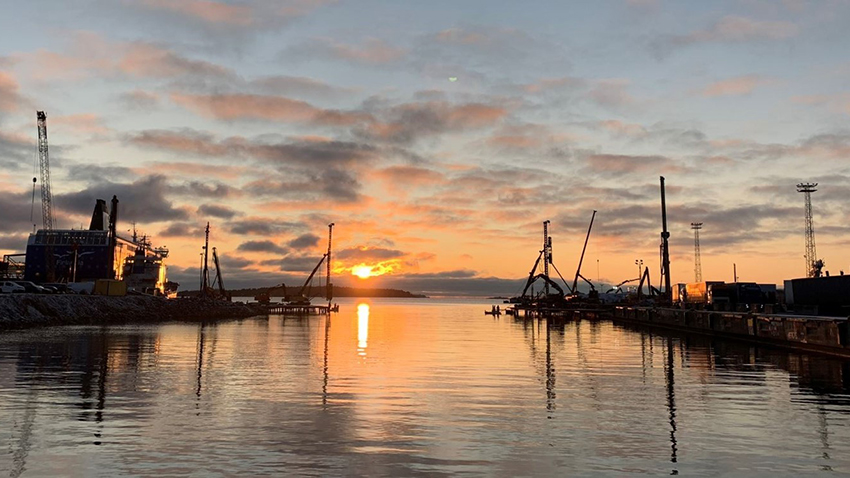Sustainable data centers as a service
To be completed this year, the Atlantinsilta bridge will connect the new neighbourhoods in Jätkäsaari with the West Terminal and make traffic smoother. The bridge will also have a tramway, which will shorten the travel time to Helsinki city centre.
As a bridge site, Atlantinsilta is among the first Building Information Model (BIM) projects for the City of Helsinki. BIM has already been implemented in many construction projects, and it is an established way of working already in all of YIT’s residential construction projects in Finland and Russia, for example. In addition, Tripla and the Blominmäki wastewater treatment plant have been praised for their Building Information Models.
The construction of Atlantinsilta has included BIM experts from YIT as well as the City of Helsinki, and the BIM has been the definitive plan.
In the project, cooperation has been a resource without which the contract would not be completed. Schedules would have failed without open discussion between all parties, but when everyone involved in the project is working towards a common goal, the result will be successful.
“We have stayed on schedule even though we have faced many changes. We are in touch every day and talk things over with each other. Openness creates an atmosphere of trust on site,” says Jarno Ylönen, Atlantinsilta Project Manager at YIT.
The construction site’s team spirit also affects how swiftly the project progresses. Bridge construction is always challenging, especially when the bridge is relatively large in size and being built next to open sea. As a location, Jätkäsaari has added its own flavour to the project, but the team has conquered all challenges through cooperation.
“With the sea wind blowing around us, the significance of team work is emphasised. The project is nearing completion, and it will be completed this spring. We have survived challenging situations together by helping each other and being flexible about the boundaries of our areas of expertise,” says Risto Sell, Atlantinsilta Project Engineer at YIT.
Special expertise has been in high demand because, in addition to the marine conditions, Jätkäsaari’s ground conditions are challenging and require three study pile plates covering a total of 2900 square metres. The new structures must be able to adapt to construction on landfill. In connection with the bridge construction, 16,700 metres of bored piles have been installed together with 3,500 metres of driven steel piles. With these, the bridge will withstand even a storm.
“Wind brings its own challenges for the site in Jätkäsaari, as do storms from the sea. In the autumn, storms arrived during the same week. We cleaned the shore and the work areas, checked the scaffolding at the water’s edge and moved our equipment under cover. On stormy days, we also kept our numbers low to keep our employees safe,” says Risto Sell.
The Atlantinsilta construction includes other shore construction, such as the repair of one hundred metres of an old quay, where concrete has to be cast underwater at a depth of two metres. This means the work will have to be scheduled for times when the sea is calm.

